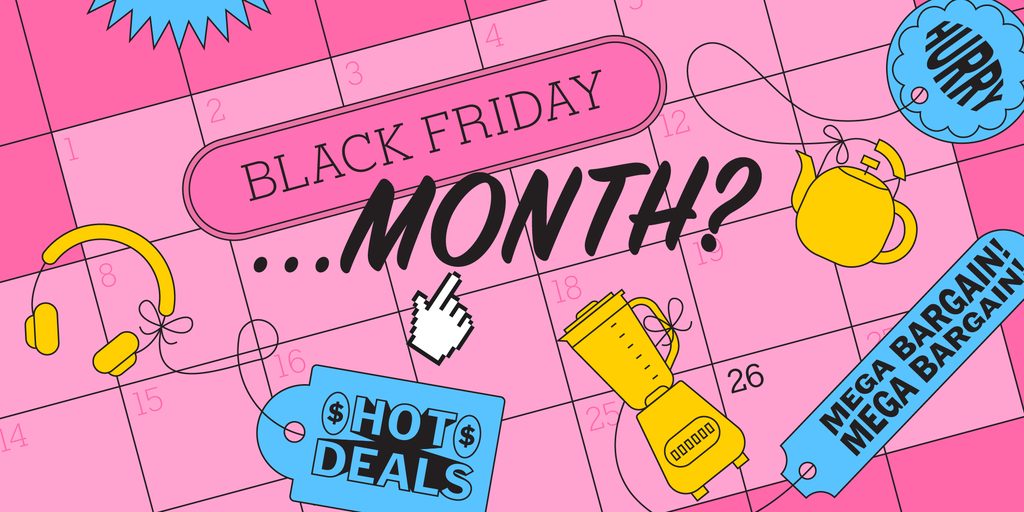Lifestyle | November 27th, 2023
The Fading Appeal of Black Friday: How the Shopping Extravaganza Lost its Flavor
By: Briana Jones-Gill

Over the years, Black Friday has changed from a much-anticipated shopping spree to an event that seems to have lost its appeal.
What was once a symbol of excitement and unbelievably low prices used to signal the start of the Christmas shopping season has changed significantly, raising concerns among businesses and customers alike about whether the once exciting and lively event is becoming less and less popular.
The Switch to Online Shopping
The increasing popularity of internet shopping is one of the leading causes of Black Friday’s decreasing appeal. With the development of new technology, more and more people choose the ease of online shopping over the mayhem and pressure of physical stores on Black Friday.
Cyber Monday, an online Black Friday competitor, has increased the phenomenon that lets consumers score deals from the comfort of their homes. Black Friday’s initial thrill of sleeping outside stores and racing down aisles has given way to the convenience of a few clicks on a digital gadget, diminishing the excitement around the holiday.
People like Davion Burnley, a 20-year-old college student, had much better luck shopping online this year.
“The online deals this year were far more attractive than the in–store promotions,” Burnley said. “I think it’s because I’m constantly on my phone that I was just more likely to see the Cyber Monday promotions, and plus, I’d rather have my items shipped to my doorstep versus waking up at 3 a.m. anyway.”
Longer Sale Periods
What was to be a single crazy shopping day has now become a weeks-long event.
Retailers have capitalized on the idea of “Black Friday Week” or “Black Friday Month,” which has reduced the event’s intensity and urgency. In addition to the decline in originality of the Black Friday experience, the lengthening of the sales periods makes it more difficult to distinguish between conventional in-store Black Friday offers and online promos.
Since consumers may now take advantage of comparable prices for a more extended period without the time-sensitive strain that Black Friday originally represented, they are no longer forced to suffer the early morning cold or the late-night mob.
Early Store Openings
Historically, Black Friday was marked by stores opening at first light and luring early risers with special doorbuster discounts. Still, the trend has been moving toward earlier and earlier openings in recent years.
Some businesses have even chosen to start their deals on Thanksgiving Day.
Due to its interference with a holiday intended for Thanksgiving and family get-togethers, this change has caused controversy. As a result, the anticipation of early morning shopping has declined. Instead, it’s replaced with a sense of duty for retail employees and a sacrifice of beloved holiday customs.
Shifting Consumer Priorities
The decreased appeal of Black Friday can also be attributed to consumers’ shifting priorities and values. People are reconsidering the way they shop.
The ideas of sustainability and conscious consumption contradict the extreme consumerism and frenzy of Black Friday shopping. Due to this mental shift, some customers are beginning to doubt the benefits of attending an event that encourages overindulgence in spending.
Bianca Jones, a mother of three, believes that this time of year can get to be just too much when the deals are continuously shoved in her face whenever she opens her phone.
“Being a mom during the holidays is stressful enough,” Jones said. “With 40 different ads for the same product being thrown at me, I often become conflicted on which offer to take.”
There is now an overwhelming amount of online and offline advertising leading up to Black Friday. Customers feel overloaded and worn out due to the constant bombardment of promotional emails, social media posts, and television commercials.
Due to the relentless flood of promotional messaging, customers have become indifferent to the promised “once-in-a-lifetime” savings that Black Friday offers. Due to this, Black Friday has lost some of its unique appeal, and many are beginning to doubt the validity of the deals and wonder if the time and effort spent shopping are worth the supposed savings.
Jordyn Stephens, a second-year pre-nursing student at Florida A&M University, participated in shopping for Black Friday this year and was everything but impressed with the deals she saw.
“It was like a regular day,” Stephens said. “There weren’t any special deals or many people at the mall. It wasn’t like past Black Fridays where people would camp outside the store at 3 a.m. to storm into the store to be met with good deals.”
While Black Friday may have lost some flavor, it is not necessarily on the brink of extinction. Instead, it transforms, reflecting changing consumer habits, technological advancements and societal values.
The future of Black Friday may depend on retailers’ ability to adapt.
Companies must find innovative ways to reignite the excitement and exclusivity that once defined this shopping extravaganza. Whether through curated in-store experiences, exclusive in-person promotions, or a renewed focus on the original thrill of unbeatable deals, Black Friday has the potential to reclaim its flavor in the ever-evolving landscape of retail.






